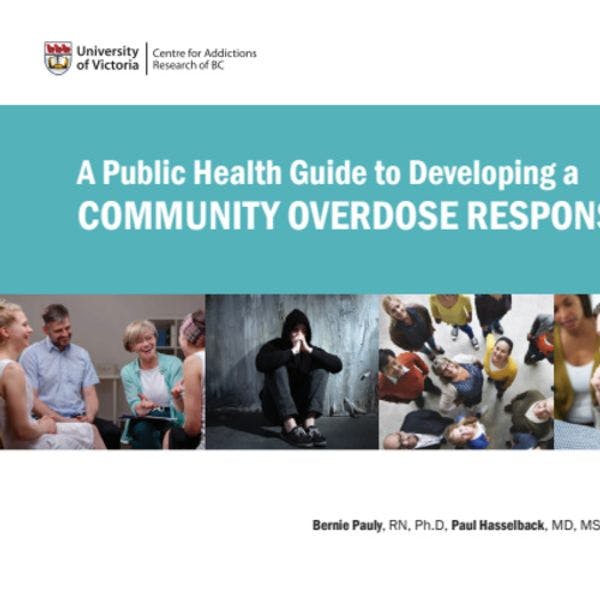Un guide de santé publique pour développer un plan communautaire de réponse aux overdoses
Ce guide de 16 pages contient quatre éléments clés nécessaires pour créer un plan de réponse aux overdoses, ainsi que des conseils pour élaborer et mettre en œuvre le plan. Pour en savoir plus, en Anglais, veuillez lire les informations ci-dessous.
By the Canadian Institute for Substance Use Research (University of Victoria)
A new publication by CISUR (formerly CARBC) and Island Health aims to give public-health agencies and community organizations the tools they need to develop a community overdose response plan.
A Public Health Guide to Developing a Community Overdose Response Plan is a 16-page guide containing four key elements required to create an overdose response plan, as well as tips for developing and implementing the plan.
"To prevent overdoses, a range of strategies are needed to reach everyone regardless of their social or economic circumstances," the guide reads. "While substance use of all types is a common feature of society, illicit substance use is often stigmatized and as a result hidden. Programs, policies and services must be developed and offered without judgment of the specific type of use."
The four key elements of a community overdose response plan are: to strengthen system resilience and community capacity for responding to and preventing overdoses; recognize and disrupt social and personal stigma and discrimination associated with substance use and addiction; implement a broad range of health promotion and harm reduction interventions to prevent overdoses; and assess and strengthen pathways to substance use services and supports.
The guide was written by CISUR's Bernie Pauly and Dan Reist, as well as Island Health Medical Health Officer Dr. Paul Hasselback. Partial funding for the project was provided by Island Health to support Bernie Pauly as Island Health Research Scholar in Residence.
